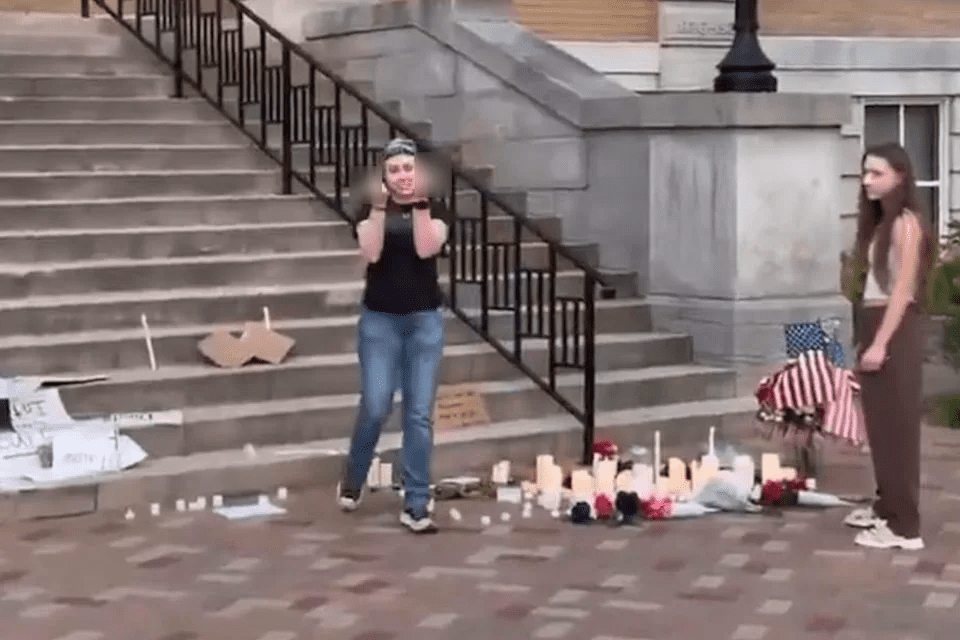Kerri and Kaylee Rollo Arrested for Vandalizing Charlie Kirk Memorial in Arkansas, Now Begging Online for Legal Fees Amid Job Loss and Backlash
In Bentonville, Arkansas, two sisters are at the center of a firestorm after they were arrested for vandalizing a makeshift memorial dedicated to Charlie Kirk, the conservative political activist who was recently killed. Kerri Rollo, 23, and Kaylee Rollo, 22, were taken into custody after video surfaced showing them ripping signs and kicking over candles that mourners had left outside the Benton County Courthouse. In the footage, one of the sisters can be heard making provocative remarks, saying Kirk “lived as he died – promoting violence.” The video quickly spread online, fueling outrage and drawing national attention.

The sisters were charged with misdemeanor vandalism, but the story did not stop there. Soon after their arrest, Kerri and Kaylee launched a GoFundMe campaign titled “FIGHT AGAINST F4CISM HELP PAY FOR OUR LEGAL FEES,” setting a goal of $18,000 to cover court costs and attorney expenses. In their appeal, they claimed they had been subjected to harassment, doxxing, and job loss as a result of the incident. Kaylee wrote on the fundraising page that her sibling was fired from their job and that both had been threatened online. She argued that the backlash represented a violation of their First Amendment rights.

The claim has sparked debate about what the First Amendment actually protects. Legal experts note that while the First Amendment protects individuals from government censorship of speech, it does not shield them from the consequences of breaking laws such as vandalism. Nor does it prevent private employers from terminating workers over public behavior that they believe reflects poorly on their businesses. The sisters’ case illustrates a common misunderstanding of constitutional protections, particularly in moments of heightened political conflict.
Kaylee updated supporters, saying, “We have been threatened, doxxed, harassed, and fired,” further painting the sisters as victims of political retaliation. Still, many critics argue that their actions went beyond protected expression and entered into the destruction of property that others had set up to mourn a man who was widely respected by his followers. For those grieving Kirk’s death, the vandalism felt less like a protest and more like an insult to the memory of someone they considered a leader.

This incident comes at a sensitive time, with the country still grappling with the aftermath of Kirk’s assassination. Memorials for him have been set up in various cities, and many of his supporters see them as sacred spaces. When those spaces are disrupted, tensions flare even more. The Rollos’ actions, whether intended as protest or simply provocation, highlight how fragile these moments of public mourning can be when politics enters the equation.
The sisters’ GoFundMe campaign quickly became controversial as well. Supporters praised them for standing up to what they called “fascism,” while detractors accused them of trying to profit from their own misbehavior. The debate online has been fierce, showing once again how quickly a local incident can escalate into a national flashpoint when it intersects with issues of free speech, political violence, and cultural division.
For Kerri and Kaylee, the days ahead will be challenging. They will face legal proceedings in Arkansas while also dealing with the personal and professional consequences of their actions. Whether their fundraising goal is met or not, the controversy has already cemented their place in the broader story of America’s current political struggles. Their case stands as a reminder that free speech is a powerful right, but it is not a shield from accountability, especially when words turn into acts of destruction.



